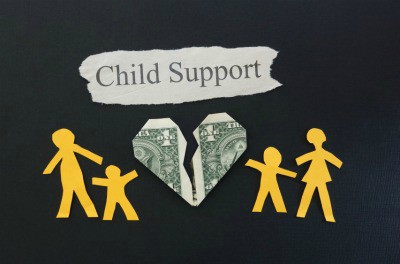 There are several ways to collect unpaid child support in Virginia. Payees of child support can take action either in the court in which the child support order was entered or by using the Department of Child Support Enforcement (DCSE). Here are six ways to force a delinquent parent to pay their child support in Virginia:
There are several ways to collect unpaid child support in Virginia. Payees of child support can take action either in the court in which the child support order was entered or by using the Department of Child Support Enforcement (DCSE). Here are six ways to force a delinquent parent to pay their child support in Virginia:
- Wage Withholding: If a party is in arrears for an amount equal to at least one month’s obligation, under Virginia Code Section 20-79.1 a court may order the payor’s employer to withhold income from their paycheck. The amount of the withholding can be the amount of any current child support due, in addition to a specific amount to be applied to arrears. To do this, a notice of arrears must be submitted to the Court.
- Suspension of Driver’s, Professional or Recreational License: When a party has failed to pay child support for a period of more than ninety (90) or is in arrears for more than $5,000, their license(s) may be at jeopardy. Due to their failure to pay, the payee of support may submit a petition to the court requesting the court suspend the payor’s driver’s license, occupational license, or recreational license. The payor then has 30 days from the day they receive notice of the petition to pay the delinquency or to reach a repayment agreement. Failure to rectify the non-payment in that time may result in suspension. This suspension may be in effect until a full or substantial payment has been made.
- Liens: To enforce the child support order, DCSE may pursue a lien on behalf of the child support payee. DCSE can use a lien to garnish money that is in the delinquent payor’s bank account. Alternatively, DCSE can file a lien in court, which will mean that any potential money the payor might receive from any court judgments may be directly garnished for payment of the child support obligation.
- Interception of Federal and State Tax Returns: Federal and State laws allow DCSE to directly seize any tax refunds which would otherwise go to the delinquent payor, and directly apply those funds to the payor’s back due child support obligation. If DCSE takes this action, there will be a delay if the payor filed a joint return (for example with a new spouse), as DCSE is required to hold the refund for a period of six months to allow the joint filer to file a claim for their portion of the return.
- Restrictions on Passport: A party who falls behind in meeting his or her court-ordered child support obligation can encounter significant restrictions on international travel. Specifically, DCSE can request the Secretary of State to deny an application for a passport, revoke an already issued passport, or restrict travel.
- Qualified Domestic Relations Order: Retirement accounts are often the largest assets owned by those who have become delinquent in their child support payments. These accounts are not commonly tapped into for child support collection—but may be, via a Qualified Domestic Relations Order (QDRO). A QDRO is a court order that directs an employer to segregate a retirement account and award another party a portion of that account. Under Virginia Code Section 20-113, a Virginia court may enforce a support order by garnishing any pension, profit-sharing, or deferred compensation plan or retirement benefit pursuant to the IRS Code or other applicable federal laws.
If you have a child support collection issue in Virginia, be sure to review your options with an experienced family law attorney in your area. Livesay & Myers, P.C. has a team of experienced family lawyers across offices in Fairfax, Arlington, Ashburn, Manassas, and Fredericksburg, representing clients across Northern Virginia. Contact us to schedule a consultation today.
